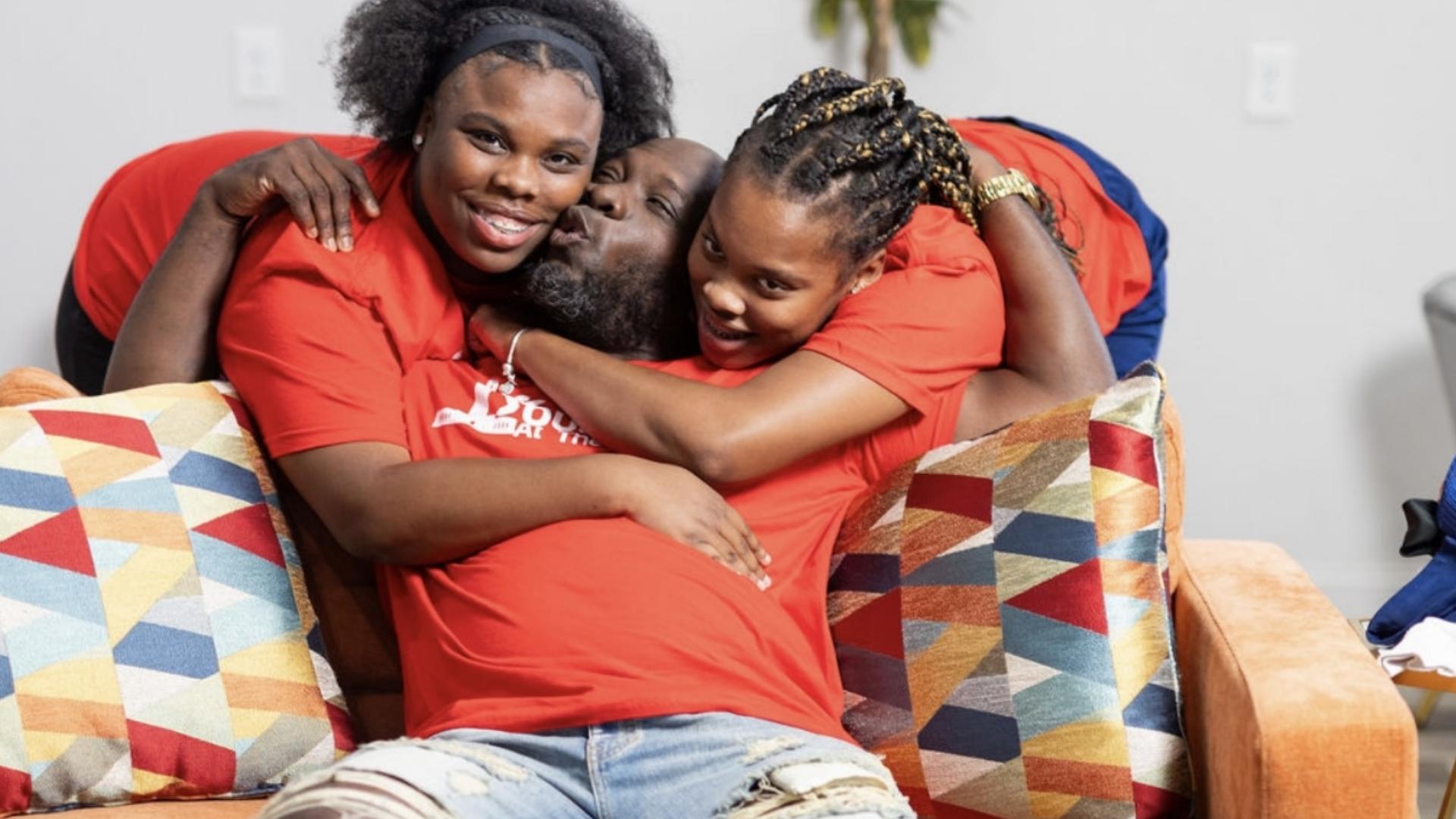NEW ORLEANS — According to the state's Department of Corrections, over 60% of people in jail right now are identified as Black or African American. The latest census for Louisiana shows Black people account for 12% of the state's population. Those statistics pushed a local woman and her father to create 'Daughters Beyond Incarceration' (DBI).
“I’ll be 42 in November; my father has been incarcerated for 42 years,” said Dominique Johnson, the Executive Director and co-founder of DBI. “The turning point came when I met other girls, then I met other girls.”
The non-profit was founded in May of 2018 to help black girls who are disproportionately impacted by parental incarceration.
Johnson said, “Parenting from prison ensures the incarcerated parent's position in a child's life isn't removed when that parent becomes incarcerated.
Despite the physical distance, Johnson said her father played an active role in her life with the support of family. She realized that may not be the case for young girls who look like her. In fact, almost 100 thousand kids in Louisiana are going through the same thing. The latest estimates show 94k have a parent in prison according to the Southern Poverty Law Center.
Johnson said, “They come from broken families, they come from broken homes. You then start to think about the percentage of children committing violent crime, the people dropping out of high school, and the teens who are ending up pregnant. You think about all these different factors, and they all lead back to incarceration.”
The American Psychological Association says children who have a parent behind bars are at an elevated risk for anxiety, depression, aggression, antisocial behavior and delinquency. Johnson set out to change those stats for black girls, by mentoring them, supporting research into parental incarceration, and advocating for girls at the state level.
“I don't think about it as necessary work because there is no way that I can go through life and know I have an incarcerated father and see another young black girl go through that and not help them,” she said.
“For some months, we didn’t know where he was at or when he was coming home, we were just wondering if we would ever see our dad again,” said Jarian Hankton, one of the first DBI clients.
Her father Troy Hankton was served 10 years behind bars.
“You know with my last name being what it is Hankton, we never had a great reputation. It was always negativity so what I did with that, I embraced that. I started to act as if I was something that I wasn't.”
In 2003 when Troy Hankton left New Orleans to play football at LSU, he was on a high, but the reputation associated with his last name caught up to him. A last name…that’s been on many court dockets with, more than a dozen family members, wrapped up in a cycle of violent crime.
“When I got caught up in that and the family things that was going on. I got into a shooting. I had a legal gun left the scene, didn't stay. Four years and 5 months later I was arrested on that shooting charge,” said Troy.
For Jarian and her siblings, their lives changed overnight. Years into her father's sentence she started to feel her father's absence.
“I felt like I was alone and everything that I did I felt like I was the only one I felt like I really didn’t have people to talk to. We talked on the phone, but I wouldn’t tell him it would just be like a two-minute conversation because I didn’t really like talking about my feelings,” she said.
Troy felt it too. He said, “I was happy to hear the voice, but I never got what I was looking for because again I wanted to know the things that she was going through. You know I'm hearing that she is having fights she's fighting boys.”
Working with DBI through the years, Jarian worked to process her feelings.
“They gave me a voice. They helped me a lot because they made me feel like even though my last name is what it is, you don’t have to live up to that last name you can show them that you are different,” Jarian said.
When Troy was released in 2022, the relationship with his kids was intact despite being done for 10 years. He credits DBI for that.
“I respect DBI to the fullest,” Troy said.
The Hanktons still work with DBI helping other families bounce back after a loved one is incarcerated, it's something he hopes will inspire other parents to do better once they are released.
Troy said, “It was the greatest feeling ever man, it just made me say to myself don’t ever do anything to put yourself in a situation again. It’s never about your past it’s always about, what do you do with that second opportunity because everybody won't get that second chance.”
DBI has recently backed legislation that passed over the last legislative session, allowing incarcerated parents to attend graduation ceremonies and parent-teacher conferences virtually. The organization has also recently started a Youth Policy Program for teens to learn about public policy and voting rights to advocate for their community.
► Get breaking news from your neighborhood delivered directly to you by downloading the new FREE WWL-TV News app now in the IOS App Store or Google Play.

